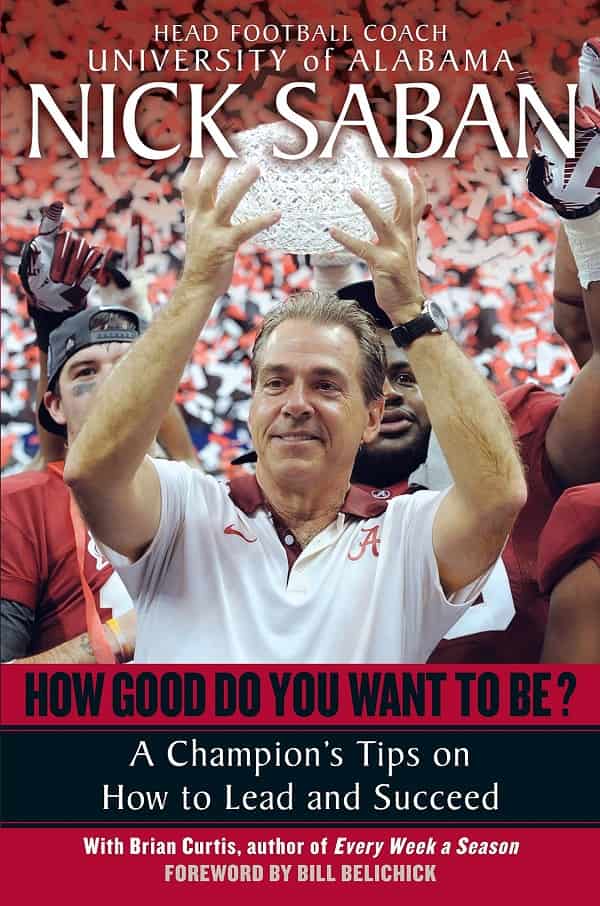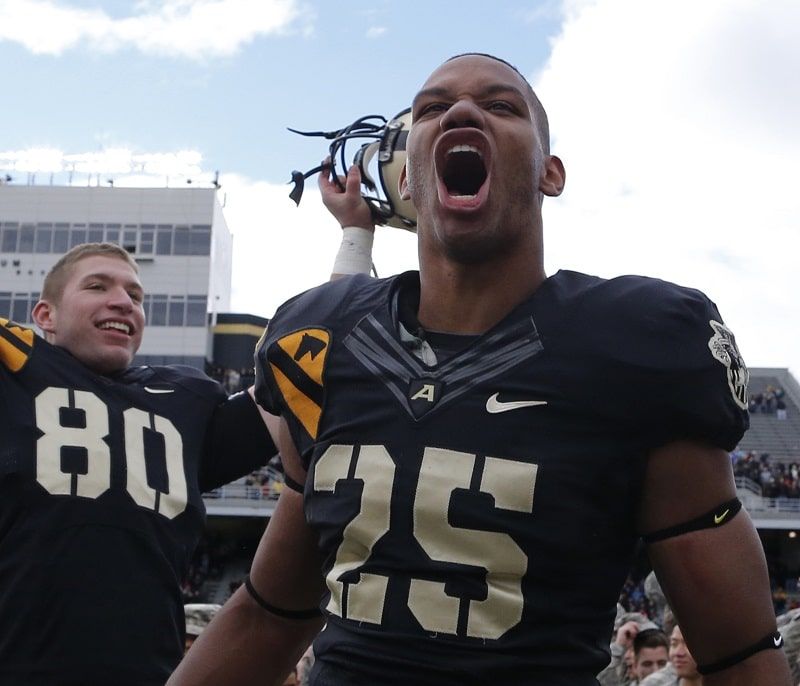
When it comes to high-performing, high-flying athletes, we rarely talk about technique, how much they lift, or what their diet looks like.
What interests us the most is their mental toughness. How they motivate and push themselves to incredible heights, over and over again.
How an athlete can summon the mental fortitude to conquer doubt, adversity, and injury. How they can concentrate like champions day in and day out, beating back the haters, doubters, and using adversity and setbacks as jet fuel for their performance.
While some athletes crack and fold under pressure, others display the mental toughness that exemplifies the mindset of a champion.
The following mental toughness books for athletes reveal how to manage stress, getting comfortable doing the hard work, and deploying the right mental skills at the right time to maximize performance.
Here are some of my favorite mental toughness books that every athlete should read.
LET’S GO.
Relentless: From Good to Great to Unstoppable by Tim Grover
Tim Grover holds a unique position in sports history—he was the personal trainer to the greatest basketball player of all-time, Michael Jordan. He worked with Jordan for over a dozen years, doing early morning workouts at Jordan’s house each day, and witnessing first-hand Jordan’s competitive fire and relentless work ethic.
Relentless: From Good to Great to Unstoppable is a distillation of the characteristics of what make champion athletes so rare.
Grover breaks down the three types of elite athletes—Cooler, Cleaner, and Closer, and gets deep into the things that make athletes like Jordan, Kobe Bryant, and Dwayne Wade so special.
More Jordan: Best Michael Jordan Books
We may not be able to hit game-winning shots in the NBA Finals, but we can emulate some of the qualities in the gym and in daily life that exemplified these superstar athletes.
- “There are no secrets. There are no tricks. If anything, it’s the opposite: Whether you’re a pro athlete or a guy running a business or driving a truck or going to school, it’s simple. Ask yourself where you are now, and where you want to be instead. Ask yourself what you’re willing to do to get there. Then make a plan to get there. Act on it.”
- “Just show up, work hard, and listen. That’s your part of the deal. Do the work.”
- “Every day, you have to do something you don’t want to do. Every day. Challenge yourself to be uncomfortable, push past the apathy and laziness and fear.”
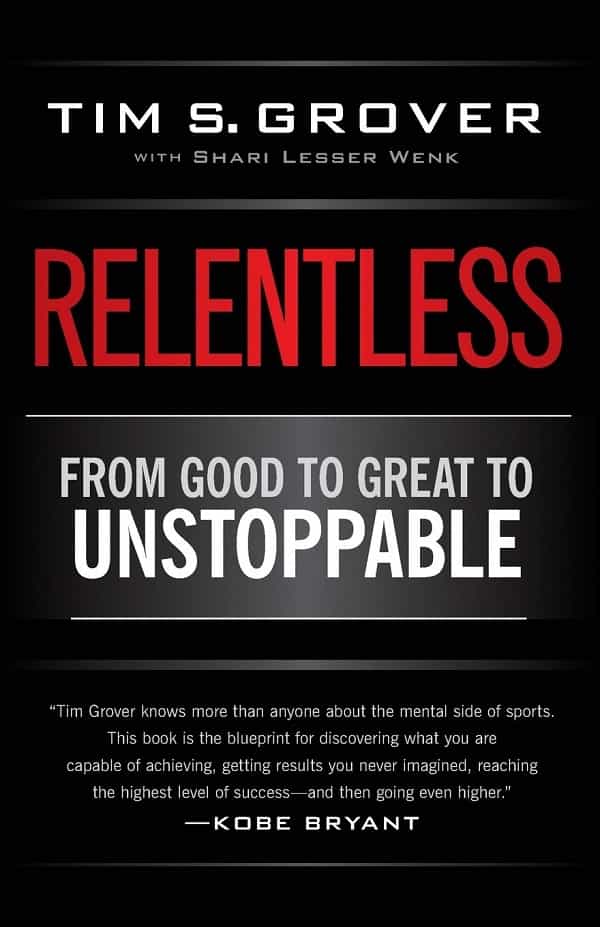
Zen in the Martial Arts by Joe Hyams
Training and competing like a champion looks easy, right? Through a bunch of effort at your goals and good things usually happen.
But more often than not, we mentally get in our own way. Zen in the Martial Arts breaks down some of the common mental roadblocks athletes experience while trying to improve and compete. Although written for martial artists, the lessons apply to every other kind of athlete. (Olympic gold medalist and NCAA champion swimmer Caeleb Dressel has read his copy several times since getting it as a teenager.)
Zen in the Martial Arts serves up a platter of lessons, including: Knowing when to go with the current, sharpening your focus so that you don’t allow distractions and doubt to overwhelm you, and concentrating your effort so that you can work better, more often.
The overriding lesson of the book is promoting mental clarity so that you can perform at your best and dodge a lot of the stress and overthinking that happens when pushing limits.
- “By visualizing the possibilities over a period of time, I reduced my fears to their proper proportions. I was finally ready for the encounter. Of course, it turned out to be far less difficult than I had originally feared.”
- “Years ago I thought too much about what I had to do, labored too long over it, put off difficult chores, waited for the mood to be right of the creative juices to flow. Now I just do it without conscious effort. It flows because the work and I are one, and not in conflict with each other.”
- “The less effort, the faster and more powerful you will be.” – Bruce Lee

Peak Performance Every Time by Simon Hartley
Simon Hartley’s Peak Performance Every Time is one of my favorite mental toughness/training books for athletes. Hartley’s book combines proven research from sport psychology and performance coaching with anecdotes of athletes he has worked with over the years.
The book covers all aspects of developing a high-performance mindset, including best practices for mental skills (visualization, goal setting, self-talk) and how to deal with the pressure and stress of competition.
You don’t need to have a background in sport psych to get a ton of value from this book. The material is presented clearly and with a minimum of academic jargon. There are countless takeaway from the book that athletes and coaches can hit the ground running with on day one.
- “Pressure is a product of our imagination…De-construct pressure by seeing the job for what it really is.”
- “We grow when we enter our discomfort zone. By consistently exposing ourselves to challenges and demands, we develop and learn. In fact, our comfort zone gradually expands to include the new challenges.”
- “One of the characteristics of a truly great athletes is that they learn from everything—the good, the bad and the average.”
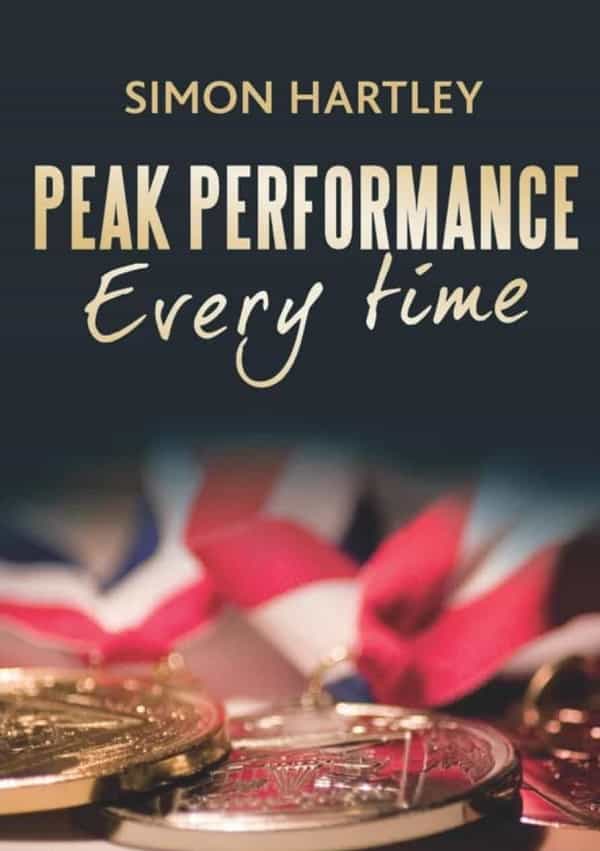
The Motivation Myth: How High Achievers Really Set Themselves Up to Win by Jeff Haden
How often have you flaked out on a workout because you didn’t “feel like it”? Or half-assed a training session because your motivation levels weren’t spiking? Or you get frustrated and discouraged by the scope of hard work and effort required to accomplish your big goals?
If you are like many athletes whose effort relies completely on feeling 100% motivated to give your best effort, and are frustrated with inconsistent results, then The Motivation Myth is right in your wheelhouse.
Ultimately, motivation comes from taking action. It shouldn’t be a prerequisite for doing the hard work. There will be days where your motivation is flying, and that is great, but there will also be days where the last thing you want to do is step into the gym.
This book is a reminder that you don’t need to feel 100% motivated all the time, and that motivation is a byproduct of action. In other words, we can create motivation by ignoring that first bit of resistance and pushing through.
- “Motivation is like a sugar rush: It feels great but it is impossible to maintain, and when you come down you actually feel worse.”
- “There is only one recipe for gaining motivation: success. Specifically, the dopamine hits we get when we observe ourselves making progress.”
- “When you savor the small victories, you get to feel good about yourself every day, because you no longer feel compelled to compare the distance between here and there. You don’t have to wait for ‘someday’ to feel good about yourself; if you do what you planned to do today, you’re a winner.”
- “Starting is hard because ‘motivation’ doesn’t make it easy to start. Starting provides the motivating to finish.”
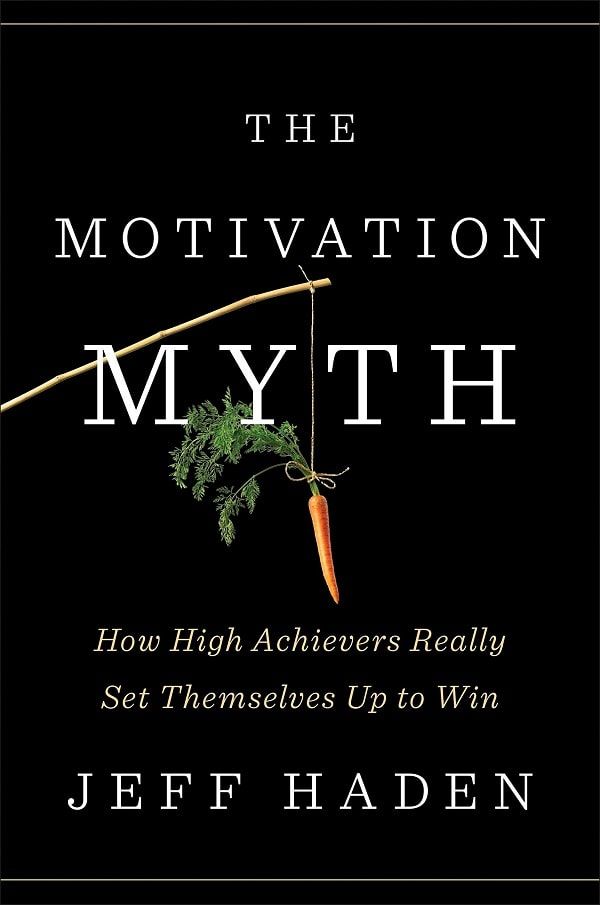
Peak Performance, Elevate Your Game, Avoid Burnout, and Thrive with the New Science of Success by Brad Stulberg and Steve Magness
Yup, another book titled Peak Performance. The book is posits that high-performance training can be broken down simply as following: Engage in deep work, undergo a period of rest, and find insights that improve the process.
Essentially, Peak Performance shows how you can work harder and be more effective by working smarter and using more intelligent recovery and rest as a weapon for more capacity.
(For more takeaways and notes from this book you can view my post, 7 Key Takeaways from Peak Performance by Brad Stulberg and Steve Magness.)
Whether you are doing work that is taxing mentally (writing a book, for example) or trying to smash PB’s in the weight room, “alternate between cycles of stress and rest.”
Strategically use recovery days and time off following “periods of heavy stress.” And perhaps most importantly, have the self-awareness to know when and where your work is suffering.
- “When you find that point, insert a recovery break just prior to it.”
- “How you treat yourself between workouts is where you make gains and acquire the strength to attack the next one.”
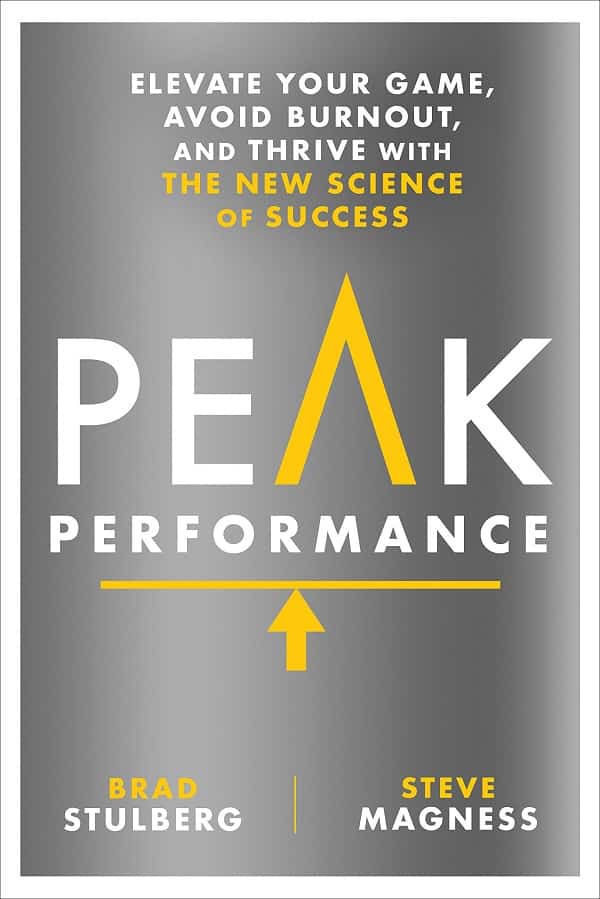
How Good Do You Want to Be? by Nick Saban
You don’t need to be a fan of Alabama or Nick Saban to appreciate the man’s accomplishments.
In How Good Do You Want to Be? Saban outlines the approach that he took to take LSU to a national championship.
His coaching philosophy, that he has since taken with him to Alabama, is simple: Outwork the competition, be positive and humble, and focus on the process.
This sounds easy, but it’s not. They are the kind of clichés that coaches, parents and teammates throw around like confetti. You probably have heard them so often that they have lost their meaning.
The kind of focus required to be able to box out distractions, the expectations of others, and the competition takes work. But once you nail the ability to stay in the moment, focused on the process, epic things begin to happen.
- “Most things are difficult, and your willingness to work through those difficulties will set you apart from the competition.”
- “Promise a starting time, but not a quitting time.”
- “Your disposition and your expectations about what it will take to get you where you want to go are truly the core of not getting frustrated by the task at hand. Expect it to be hard.”
